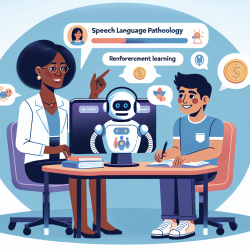As practitioners dedicated to improving the mental health outcomes of children, it is essential to stay informed about innovative research and emerging technologies. A recent study titled A Wearable Artificial Intelligence Feedback Tool (Wrist Angel) for Treatment and Research of Obsessive Compulsive Disorder: Protocol for a Nonrandomized Pilot Study explores the feasibility of using a wearable biosensor to monitor OCD symptoms in children and adolescents. This blog aims to highlight key findings from this study and discuss how practitioners can implement these insights to enhance therapeutic interventions for OCD.
Key Findings from the Wrist Angel Study
The study's primary aim was to evaluate the feasibility and acceptability of using a wearable biosensor to monitor OCD symptoms. The secondary aim was to explore the potential of developing clinical and research tools to detect and predict OCD-relevant internal states and interpersonal processes using physiological, speech, and behavioral signals.
Key findings include:
- Feasibility: The study successfully recruited and retained participants, demonstrating the practicality of using wearable biosensors in a clinical setting.
- Functionality: The biosensors provided reliable data on physiological signals such as pulse, electrodermal activity, skin temperature, and acceleration.
- Acceptance: Both children and parents reported positive attitudes towards wearing the biosensor, indicating its acceptability in real-world scenarios.
- Predictive Capability: Preliminary evidence suggests that machine learning models can use biosensor data to predict OCD episodes and monitor symptom severity.
Implications for Practitioners
Practitioners can leverage these findings to improve therapeutic outcomes for children with OCD. Here are some actionable steps:
- Integrate Wearable Technology: Incorporate wearable biosensors into therapy sessions to continuously monitor physiological signals. This real-time data can provide valuable insights into a child's emotional and physical state, allowing for more tailored interventions.
- Utilize Machine Learning Models: Use machine learning algorithms to analyze biosensor data and predict OCD episodes. This can help in adjusting therapeutic approaches based on the child's current state and progress.
- Enhance Parent-Child Interactions: Monitor and analyze parent-child interactions using the biosensor data to identify patterns that may contribute to OCD symptoms. Interventions can then be designed to modify these interactions for better outcomes.
- Encourage Further Research: Advocate for more studies to validate and refine the use of wearable biosensors and AI in treating OCD. Collaboration with researchers can lead to the development of more effective tools and strategies.
Conclusion
The Wrist Angel study offers promising insights into the use of wearable AI technology for monitoring and treating OCD in children. By integrating these innovative tools into clinical practice, practitioners can enhance the precision and effectiveness of their interventions, ultimately leading to better outcomes for children with OCD.
To read the original research paper, please follow this link: A Wearable Artificial Intelligence Feedback Tool (Wrist Angel) for Treatment and Research of Obsessive Compulsive Disorder: Protocol for a Nonrandomized Pilot Study.










